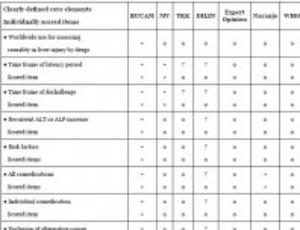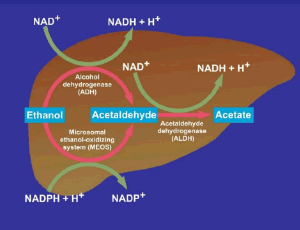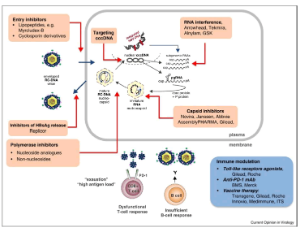Loading
Archives of Gastroenterology Research
ISSN: 2692-5427
Featured Articles
DILI, HILI, RUCAM Algorithm, and AI, the Artificial Intelligence: Provocative issues, Progress, and Proposals
Rolf Teschke
Artificial Intelligence (AI) principles published in 1956 included the recommendation to use algorithms for solving complex processes. The creation of the Roussel Uclaf Causality Assessment Method (RUCAM) was published in 1993 with integration of an intelligent algorithm to solve issues of causality assessment in cases of complex suspected drug induced liver injury (DILI) cases. Other causality assessment methods (CAMs) published before the era of AI and RUCAM followed rather general principles without precise and valid algorithm.
Arch Gastroenterol Res, 2020, Volume 1, Issue 1, p4-11 | DOI: 10.33696/Gastroenterology.1.002
Alcoholic Liver Disease and the co-triggering Role of MEOS with Its CYP 2E1 Catalytic Cycle and ROS
Rolf Teschke, Manuela G. Neuman, Suthat Liangpunsakul, Helmut-Karl Seitz
Until the early sixties, the concept prevailed that alcoholic liver disease (ALD), also termed alcohol-related liver disease (ARLD), results from malnutrition commonly observed among individuals consuming chronically high amounts of alcohol rather than being causally related to the use of alcoholic beverages. However, the malnutrition concept became a matter of debate because of the clinical observation that humans, even on a normal diet and without signs of underweight or malnutrition
Arch Gastroenterol Res, 2021, Volume 2, Issue 1, p9-25 | DOI: 10.33696/Gastroenterology.2.022
Are We Close to Achieving a HBV Cure? Risk for Hepatocellular Carcinoma Persists Despite Long-term HBV Suppression: An Update on Our Experience
Tina Boortalary, Brianna J Shinn, Robert M Coben, Mitchell I Conn, Jorge Prieto, Howard Kroop, Anthony J DiMarino, Hie-Won Hann
Since the discovery of the hepatitis B virus (HBV) by Blumberg et al., great progress has been made in understanding the pathogenesis of the virus and its role in hepatocellular carcinoma (HCC). It is estimated that hepatitis B is responsible for about 50% of the HCC cases worldwide. Because of geographic variations in HBV incidence, the burden of HBV-related HCC (HBV-HCC) is highest in endemic areas such as Asian-Pacific and sub- Saharan Africa and lowest in the United States and the West.
Arch Gastroenterol Res, 2020, Volume 1, Issue 4, p105-110 | DOI: 10.33696/Gastroenterology.1.018
About Scientific Archives
Scientific Archives is a global publisher initiated with the mission of ensuring equal opportunity for accessing science to research community all over the world. Spreading research findings with great relevance to all channels without any barrier is our goal. We want to overcome the challenges of Open Access with ensured quality and transparency.
